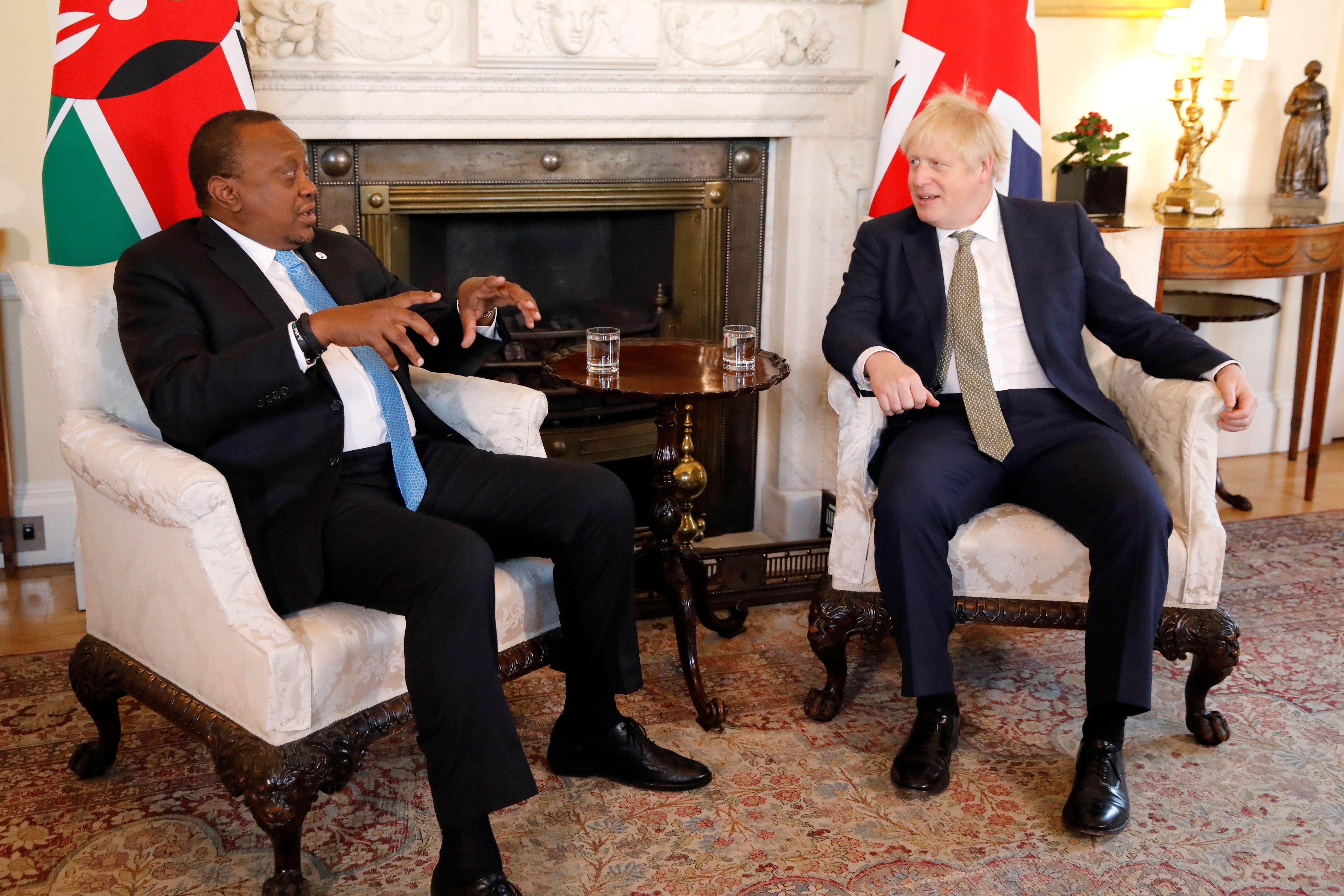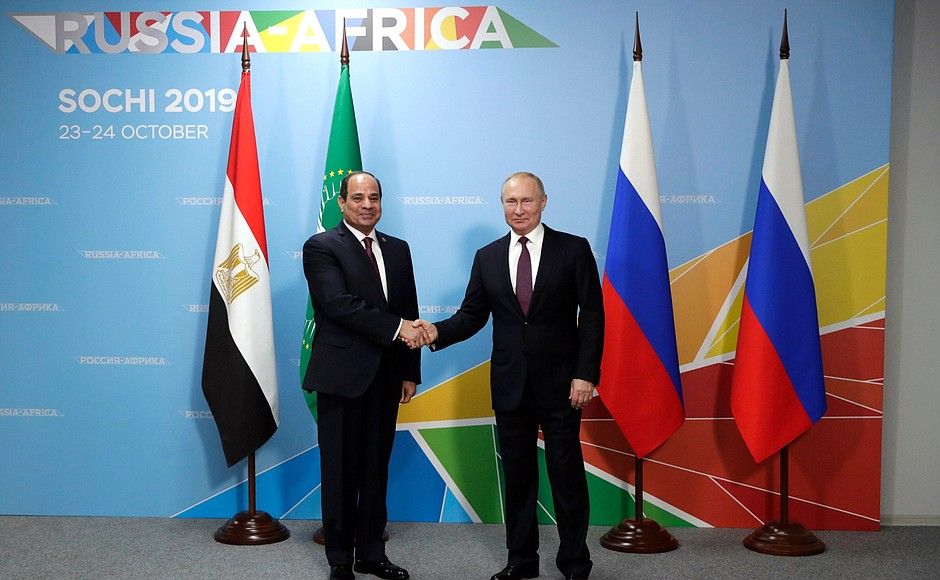Changes in the UK’s Africa Policies after Brexit

The UK economy growing at its slowest pace in a decade—around 0.1-0.3% at the end of 2019—and is in need of solutions that will ensure stable growth. The exit from the EU will initially worsen the conditions of British trade and investment in the Union. It is, therefore, necessary to compensate for the effects of Brexit. Since the referendum on leaving the EU in 2016, the UK has signalled its intention to strengthen the African direction of its foreign policy, especially in trade policy. However, the prolonged exit from the EU and revision of foreign policy after Boris Johnson took over the prime minister’s portfolio has meant that at the beginning of this year, on the eve of Brexit, British policy towards Africa was underdeveloped.
Goals and Tools
The UK’s exchange with African countries in 2018 amounted to about $23 billion, with 4.8% of total exports from Africa entering the British market. In August 2018, then-Prime Minister Theresa May visited Nigeria, Kenya, and South Africa (the UK’s largest trading partner)—the first British leader to travel to the continent in five years—and announced that the UK by 2022 wants to become the largest investor in Africa among the G7 countries. This requires reversing the decreasing trend in British investments in Africa, which have fallen from $60 billion in 2013 to $47 billion in 2017.
Post-Brexit UK must conclude new agreements providing the legal basis for trade and investment. These would replace EU trade regimes, such as “Economic Partnership Agreements” (EPAs) and the “Everything But Arms” (EBA) mechanism providing the poorest countries—including many in Africa—with preferential access to the EU market. However, the UK could not even negotiate new agreements with third countries as long as it was a member of the EU. Therefore, in order to maintain trade continuity with Africa, EU agreements with individual countries were temporarily included in the British legal system (so-called “rollover”). This was to guarantee favourable operating conditions for British entities immediately after Brexit. The framework for final trade agreements in Africa was set in 2017 by the Secretary of International Trade Liam Fox. He presented a proposal of unilateral trade preferences for African partners, offering them better sales conditions than the EU. However, Prime Minister Johnson in September 2019 cancelled Fox’s plan without providing an alternative, which resulted in a slowdown in work on the British strategy towards Africa.
The investment summit in London on 20 January, at which there were representatives of 21 African countries, was to offer a long-awaited impulse to stimulate British activity in Africa. It was held under the slogan of making the UK the “natural choice” of partner for Africa. Johnson’s government presented a new development policy towards Africa, which is to be implemented together with the private sector. The UK authorities have allocated around $520 million in new funds, including tools to help African and British companies establish business relationships and support African exports. The CDC Group, a British government financial institution for development, has pledged to support private investment worth $2.6 billion in the next two years. The money will be used to promote the development of environmentally friendly infrastructure and technologies. Emphasizing concern for the climate, Johnson noted that no coal projects would receive funding. However, the juxtaposition of pro-ecological declarations with the high value of the contracts concluded during the summit by British companies for the extraction of fossil fuels (worth $2.7 billion, with, among others, Kenya, Mozambique, the Ivory Coast) weakened the credibility of that claim. In total, during the London meeting, British companies signed contracts worth about $8.5 billion.
Main Problems
The most serious challenge facing the UK in implementing its Africa policies will be the weakening interest in the continent in the last six months. While May paid a lot of attention to relations with African countries in the Brexit perspective, Johnson, focused until the end of 2019 on the negotiations with the EU, did not address Africa-related issues. As a result, the British negotiators will be acting under time pressure. This situation will prompt African countries to make additional demands. In addition, the leaders of the largest English-speaking countries—Ghana and Nigeria—have convinced their electorates that, thanks to Brexit, their economies will quickly recover from stagnation. Therefore, hard negotiations will be part of the internal logic of some African countries. Additionally, weakening the attractiveness of the British offer will be the growing involvement on the continent of other countries besides China, for example, Turkey, Russia, and the United Arab Emirates.
The trade negotiations may also be made more difficult by the dispute about the status of the British Chagos isles, which, according to the interpretation of UNGA Resolution 1514, accepted by most countries, should be returned to Mauritius. The right of Chagos native inhabitants, displaced in the 1960s and 1970s, to return has gained wide international support. In 2019, 116 countries supported those demands at the UNGA and only six were in favour of the British position. Mauritius is seeking means of pressure to force the UK to make concessions. For example, it may push for the African Union to issue instructions to its members—all countries on the continent—to include the issue of the Chagos in bilateral negotiations.
Challenges for the EU
Brexit means that the UK will become a direct EU competitor in Africa in some areas. Britain also wants to gain influence in shaping the legal framework of the African Continental Free Trade Area (AfCFTA), which is to become operative from the middle of this year. Therefore, both entities strive at the same time for the opportunity to support the legislative team developing AfCFTA regulations. London City is to help create a regional hub for financial services in Accra, the capital of Ghana. The first step to this was the forging of cooperation between the London Stock Exchange (on which 112 African companies are listed) and the Ghanaian equivalent. These UK-created financial institutions will be linked to the AfCFTA secretariat—now being established in the same city—and will provide the British with influence over the new organisation, with which the EU will negotiate terms of cooperation in the future.
The terms of access to the British market after Brexit as an alternative to EU proposals are of particular importance to countries with high exports to the UK, such as Tanzania. In recent years, the country has blocked negotiations on an EPA in the EU-East African Community format (Burundi, Kenya, Rwanda, South Sudan, Tanzania, Uganda) in anticipation of a better deal with the UK. In the short-term, Brexit impedes the reduction of political tension in EU relations with this country and weakens the EU’s strength in negotiating with Tanzania in the medium term.
Perspectives
The January summit in London confirmed that the UK is not ready to significantly increase its involvement in Africa. The scale of funds allocated during the meeting (a total of $3.1 billion) did not allow that summit to be compared to recent ones held by the EU (in 2017, the bloc promised $48.6 billion in investments), France (2017, $25 billion in development funds), or China (2018, $60 billion, mainly loans). The UK’s rivalry with the EU regarding the terms of trade agreements will affect the agenda of the November EU-Africa Summit. This rivalry may, for example, prompt the Union to stop stalling in EPA negotiations and accelerate work on a comprehensive agreement with AfCFTA.
Until 31 December, the priority of the UK Department for International Trade will be to negotiate agreements with major trading partners, including the EU and the U.S. As a result, it may not have sufficient resources to develop favourable agreements with African countries. Thus, probably from 2021, WTO regulations will be automatically applied to some African countries, which means raising customs barriers for both UK and African exporters. To avoid this scenario, the UK will be willing to grant African countries better export conditions, such as for South African wines, during negotiations of bilateral agreements. In this option, producers in equivalent European industries will demand similar facilities, which will resonate in the negotiations of the EU-UK agreement.





